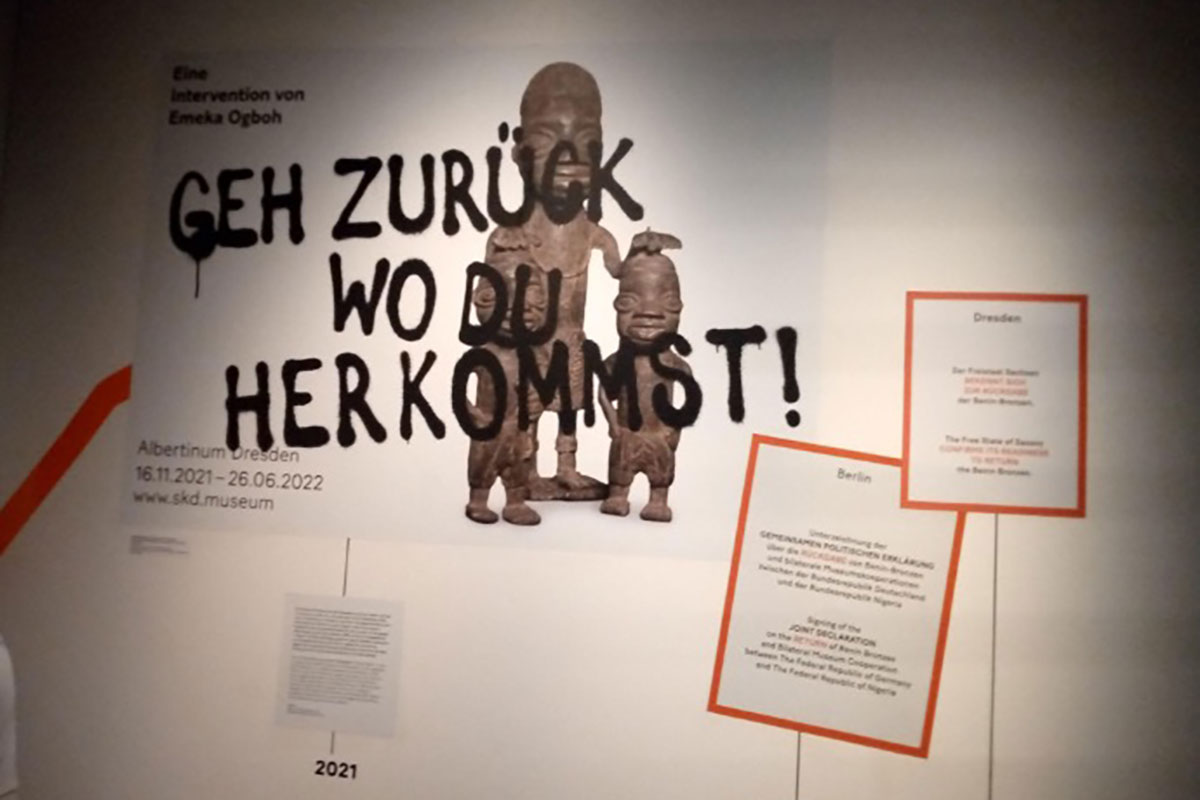Learning from other projects
Germany
Share
The European country that has probably devoted the most resources and efforts to provenance research and is at the most advanced stage in the restitution, repair, and resignification of its colonial collections is Germany. To learn from the case, the (Tr)african(t)s team has been assisted by Mary Benewaah Asamoah, a Master’s student in African Studies at the University of Leipzig. Benewaah, who did her Master’s internship with us, has compiled a collection of debates and initiatives around provenance research and the restitution of artefacts. The most relevant cases, which have generated the most debate and which have led to the establishment of agreements and protocols, have been those of objects and human remains from present-day Namibia, the re-signification of the Humboldt Forum and the return of the Benin Bronzes.
The case of the repatriation of human remains from the war and genocide perpetrated by German colonial troops against the Herero and Nama peoples (1904–1908) has been accompanied by debates that go far beyond the return of the remains to present-day Namibia. These debates have led Germany to: accept and recognize the massacre as genocide; establish a programme of economic reparations; and undertake a number of research activities, aimed at learning more about the events and seeking collaborations with the descendants of the survivors. Benewaah’s compilation of initiatives helps us to think about possible scenarios and ways of approaching the collections we work with.
+info:
Leipzig University

